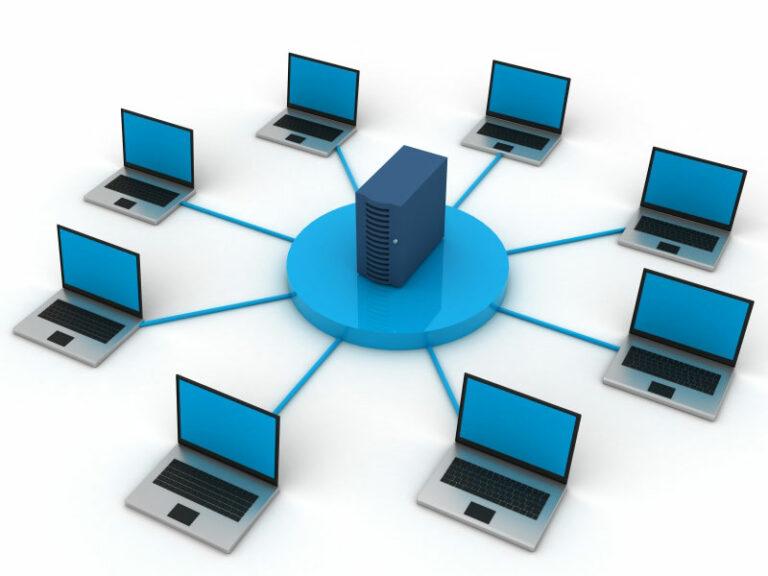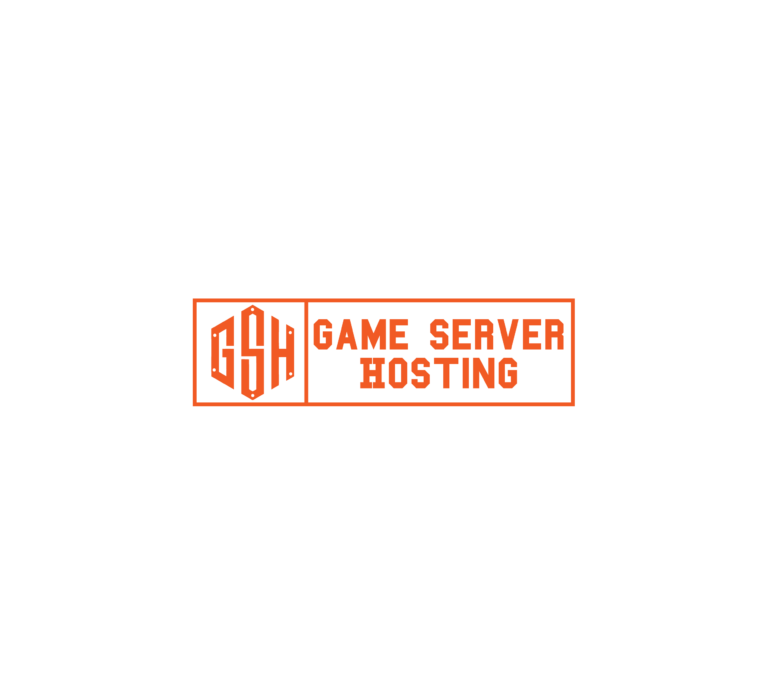In today’s interconnected world, gaming is not just a solitary activity but a social one that transcends borders and time zones. Game Server Hosting is a topic that, while not often discussed in mainstream gaming conversations, is integral to this social experience.
Essentially, game server hosting enables multiple players to interact in the same virtual environment, allowing for real-time engagement, competition, and collaboration. Whether you are a game developer looking to set up a server for your latest project or a gamer considering hosting your own Minecraft or Call of Duty server, understanding Game Server Hosting 101 is critical. In this comprehensive guide, we’ll delve into various aspects of game server hosting, breaking down the complexities so you can make an informed decision.
What is Game Server Hosting?
Game Server Hosting 101 begins with understanding what a game server actually is. In simple terms, a game server is a powerful computer or server rack that hosts multiplayer online games. This server communicates with each player’s computer, facilitating interactions between players and keeping the game’s environment consistent for everyone. Game Server Hosting 101 is the practice of setting up and maintaining these servers. Unlike single-player games that run on individual PCs or consoles, multiplayer games require a dedicated server to handle the collective gaming data, including player positions, game state, and much more.
The Role of a Game Server
In Game Server Hosting 101, the role of a game server cannot be overstated. It’s the backbone of any online multiplayer game, taking on the heavy-duty work of maintaining the game’s integrity. It synchronizes actions across multiple players, ensuring that everyone experiences the game in the same way. Imagine playing a first-person shooter; the game server decides who shot first or which player’s action takes precedence during a tie.
Types of Game Servers
Understanding the different types of servers is the next step in your Game Server Hosting 101 journey. While the fundamental role of a game server is the same across the board, different games and setups call for different types of servers.
Dedicated Servers
In Game Server Hosting 101, dedicated servers are often considered the gold standard. They are servers dedicated solely to hosting a particular game and are usually set up by the game’s developers. These servers offer optimal performance, but they can be expensive to run and maintain.
Peer-to-Peer Servers
Peer-to-peer (P2P) is another term you’ll come across in Game Server Hosting 101. Unlike dedicated servers, in a P2P setup, one of the player’s machines acts as the server. This approach is easier and cheaper to set up but often results in poorer performance, especially if the host has a slow connection or weak hardware.
Setting Up a Game Server
Moving on in our Game Server Hosting 101 guide, let’s talk about how to set up a game server. Generally, there are two ways to go about this: doing it yourself or opting for a game server hosting service.
DIY Approach
When exploring Game Server Hosting 101, you might consider the Do-It-Yourself (DIY) approach, especially if you’re technically inclined. This involves using your own hardware and installing all the necessary software manually. While this option gives you the most control, it also requires a significant time investment for setup and maintenance.
Hosting Services
For those less tech-savvy, Game Server Hosting 101 also includes the option of hiring a game server hosting service. These companies offer pre-configured servers for a monthly fee. They take care of all the technical aspects, leaving you free to enjoy the game.
More important details of game server hosting
After understanding what game servers are, the types of game servers, and how to set them up, we’ll now delve into the operational aspects, security measures, and other crucial elements that you need to be aware of.
Costs Associated with Game Server Hosting
One of the first questions that come to mind when diving into Game Server Hosting 101 is: How much does it cost? Well, the cost varies significantly depending on the type of server, the game you intend to host, and whether you choose a DIY approach or a professional hosting service.
Hardware Costs
In Game Server Hosting 101, hardware costs can be a significant investment, especially if you choose to host the server yourself. Depending on the game’s requirements, a server can range from a few hundred to several thousand dollars. Moreover, don’t forget about the ongoing costs of electricity and maintenance.
Service Fees
Alternatively, if you’re going the hosting service route in Game Server Hosting 101, expect to pay a monthly or annual fee. This fee can vary based on the game, the number of slots (i.e., the maximum number of players), and any additional features you may require.
Security Measures
Security is a topic that cannot be ignored when discussing Game Server Hosting 101. Whether you’re hosting a small game for friends or a larger public server, keeping your server secure is crucial.
Firewalls
In Game Server Hosting 101, implementing a robust firewall is one of the first lines of defense. This restricts unauthorized access to your server, allowing only trusted IPs to connect.
Regular Updates
Another essential aspect of Game Server Hosting 101 is keeping your server software updated. Security vulnerabilities are often discovered in older versions, so updating to the latest version is a way to safeguard your server.
Performance Optimization
Performance is another critical concern in Game Server Hosting 101. A laggy server can seriously hinder the gaming experience, and for competitive games, milliseconds can make a significant difference.
Latency Reduction
Reducing latency is an ongoing challenge in Game Server Hosting 101. Low latency ensures smooth gameplay, and several techniques such as traffic prioritization can help in achieving this.
Resource Allocation
Game Server Hosting 101 also involves wisely allocating server resources. Monitoring CPU, RAM, and bandwidth usage will help you understand what needs to be upgraded or optimized for better performance.
Community Building and Moderation
Last but not least, Game Server Hosting 101 wouldn’t be complete without discussing community building and moderation. A well-maintained server can foster a thriving community, which can contribute to the server’s success.
Rules and Guidelines
Setting up a list of rules and guidelines is a best practice in Game Server Hosting 101. Clear rules help maintain a respectful and enjoyable gaming environment for everyone involved.
Active Moderation
Having active moderation is equally essential in Game Server Hosting 101. A team of moderators can help enforce the rules, manage disputes, and keep the community engaged with events or updates.
Game server hosting – What have we learned?
In wrapping up this comprehensive guide, it’s clear that game server hosting involves a lot more than just a computer and an internet connection. From types of servers to costs, security, and performance, there’s a lot to consider. But with the right knowledge and tools, you’ll be well on your way to providing an excellent gaming experience for players.
If you want help finding the best game server hosting with servers in the UK, you can compare and search on our homepage! Please take a look.
FAQ
A game server is a specialized server used for hosting multiplayer online games. It is a powerful computer or series of computers that manage the game environment, allowing multiple players to connect, interact, and play the game in real-time.
The primary types of game servers are dedicated servers and peer-to-peer (P2P) servers. Dedicated servers are exclusively used for hosting a particular game and offer optimal performance. P2P servers are generally easier to set up but can suffer from performance issues, as one of the player’s computers acts as the server
The cost of game server hosting varies widely based on several factors, such as the type of server, game requirements, and whether you opt for a DIY approach or a hosting service. DIY costs can range from a few hundred to several thousand dollars in hardware alone, while hosting services usually charge a monthly or annual fee.
Security is paramount in game server hosting. Some essential steps include implementing a robust firewall to restrict unauthorized access and keeping your server software up-to-date to protect against vulnerabilities.
Performance optimization involves several strategies, including reducing latency and smart resource allocation. Techniques such as traffic prioritization can help achieve lower latency, while monitoring tools can help you allocate resources efficiently.
Community building and moderation are crucial aspects of game server hosting. Creating a list of rules and guidelines can help maintain a respectful environment. Active moderation, either by you or a team of moderators, can keep the server well-maintained and the community engaged.
The choice between DIY and a hosting service depends on your technical skills, time investment, and budget. DIY gives you full control but requires a significant commitment in terms of time and maintenance. Hosting services take care of these aspects but at a recurring cost.
Aside from the initial setup, game server hosting also involves ongoing costs like electricity, hardware upgrades, and potential service fees if you are using a hosting service.
Latency is the delay between a player’s action and the server’s response. In multiplayer games, low latency is crucial for a smooth and fair gameplay experience.
Yes, it’s possible to host multiple games on the same server, but it’s important to ensure that the server has sufficient resources (CPU, RAM, bandwidth) to handle the load, or else performance may suffer.




